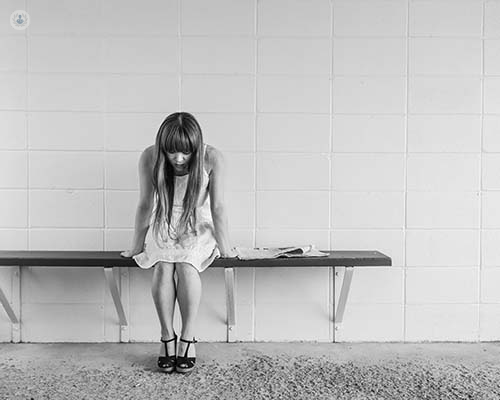Bipolar disorder: the differences between type 1 and 2
Written by:We used to think of bipolar disorder as a discrete diagnosis, in that it was something you either had or you didn’t have. However, now we think of bipolar as a spectrum of disorders where there is a full range of severities.
Here, leading London psychiatrist Dr Liam Parsonage explains the difference between type 1 and type 2 of bipolar disorder and how the mental health disorder is diagnosed.

What is the difference between bipolar 1 and bipolar 2?
Bipolar disorder is characterised by episodes of extreme mood, from the ‘highs’ of manic episodes to the ‘lows’ of depressive episodes. The difference between bipolar 1 and 2 depends on the severity of these episodes.
We think of bipolar 1 as at the very extreme end of that spectrum and these are the people who are more severely affected by the condition. The symptoms of a manic episode, such as elated energy, restlessness, extreme feelings of happiness and lack of sleep, may be severe enough for hospitalisation.
Bipolar 2 is where people have all the symptoms of bipolar and experience periods of mood disturbance. They have episodes of elated mood and episodes of low mood, but the severity of the symptoms is less pronounced. They don’t necessarily experience manic episodes that are enough to require hospitalisation. Having said that, bipolar 2 can still have a significant impact on a person’s life and still needs assessing and treating correctly.
Is there a ‘bipolar test’ I can take?
There is no “test” as such for bipolar. There is no blood test, genetic test or questionnaire that you can take to test for bipolar. A diagnosis of bipolar disorder is made by a consultant psychiatrist after taking a careful history to understand the symptoms you have, how they affect you, and if there are any other factors that need to be taken into account to make sense of your symptoms.
Bipolar can sometimes be a difficult diagnosis to make and within mental health, there is often an overlap of symptoms with different diagnoses. Therefore it’s important that if someone thinks they might have bipolar they are assessed by a consultant psychiatrist to ensure that the correct diagnosis is made to then make sure the person gets the right treatment.
Read more on the signs of bipolar disorder


